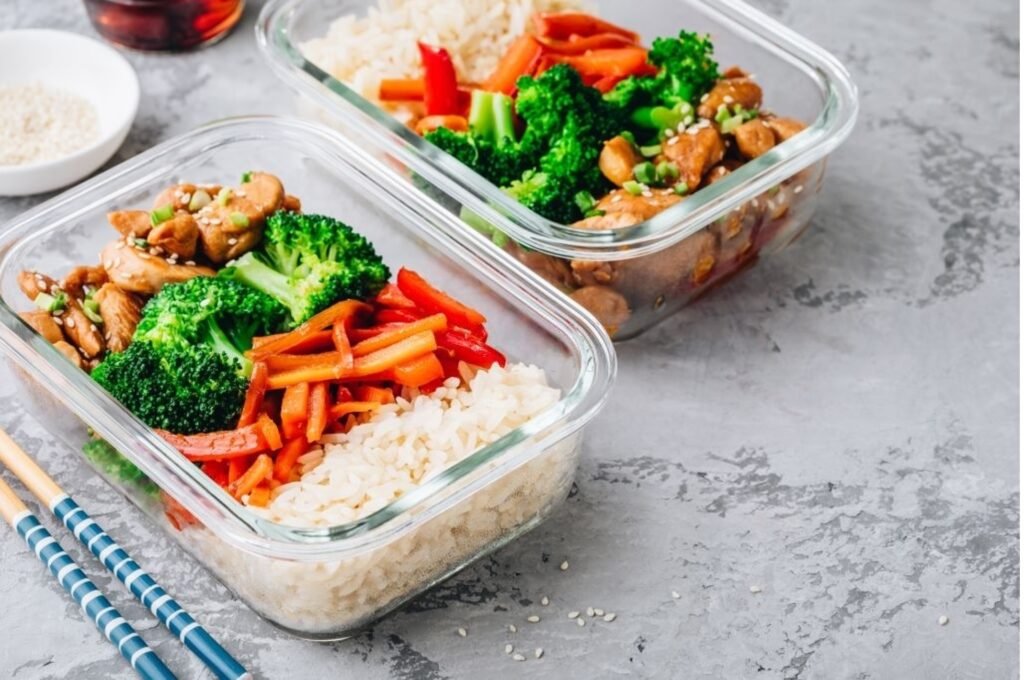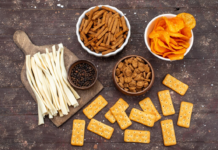
While the pandemic has turned our lives upside down, it also has brought some positive change into our life. For instance, the looming threat of the virus has made us aware of how important it is to rethink the way we live. Besides, the virus can be life-threatening to people with underlying conditions related to lifestyles – like people with a high BMI, heart disease, diabetes, etc.
The pandemic has also been stressful for us – leading many of us to overindulge in our comfort foods at a time when sources of comfort are scarce around us.
If your pandemic indulgence got you worried about your growing waistline, now might be the perfect time for you to do something to put a stop to that escalating body weight. While exercise might be the first thing that might come to mind when you think about weight loss, we also have to remember that one can’t outrun their mouth when it comes to weight loss.
So, although daily exercise is an excellent choice, reducing calorie consumption is far more effective at losing weight. We need to take a closer look at everything we eat and how our meals are prepared. Here is where the adage of if you want to do something right, you have to do it yourself comes into play.
Meal prep by far is the most effective way to tackle that. For one, it saves you from the temptation of takeaway and eating out. Besides, it makes it easier for you to watch out for your calorie intake and better manage your portions.
As a beginner, meal prep might seem daunting to you, and if planning is not your thing, it can be even more overwhelming. Fortunately, some simple yet effective strategies can make your weight loss journey with meal prep more worthwhile. Let’s read on to learn what they are.
Ensure Variety with Different Recipes
One of the major arguments about meal prep is that it limits your food variety. And when you have to keep eating the same menu for five days in a row, you are bound to rethink whether meal prep was the right choice for you. But with a bit of planning and creativity, you can still bring ample variations to your weekly meal. And don’t worry, you don’t have to break the budget or even break a sweat in the kitchen to prep those meals.
There is a myriad of combinations you can come up with just what you have in your pantry. And if you are feeling stuck with just the same few recipes you have tried for the umpteenth time, you should check out some meal prep recipes online to get some new ideas.
To bring variation in taste, stock up your pantry with some spices and condiments. While spices and herbs make our recipes delicious, some spices (like cayenne pepper) are also highly effective in burning body fat.
Learn the Science Behind Weight Loss- A Calorie Deficit
All weight-loss programs more or less have the same goal – creating a calorie deficit in your body. A calorie is the unit measurement of energy that you get from consuming food throughout the day. On the other hand, it also measures the energy your body spends throughout the day- by working, sitting, or even sleeping.
And when you spend more calories than you consume, you create a calorie deficit in your body. For instance, if you eat a 100 calorie apple, then walking for about an hour will burn 150 calories, thus creating a calorie deficit of 50.
But that doesn’t mean if you consume 2000 calories per day, you have to burn all of them by exercise to create a calorie deficit. Our bodily functions all burn calories. So, even as we sit, work from home, breathe, think, sleep, and eat, we burn calories. So, if you spend 2000 calories each day by doing those things, you can simply create a calorie deficit just by consuming less than that 2000 calories.
While tracking your calorie intake is tricky, you can easily pull that off by meal prep. To reduce the risk of undereating or drastically cutting your calorie intake, you need to calculate your required calorie per day- according to your age, height, gender, and level of activity.
You can use an online calorie calculator to put all the required data and get an estimation of your required calorie. Then you need to incorporate that calorie number into your meal prep routine.
Invest In a Food Scale
Don’t just obsessively weigh yourself every few days to monitor your weight loss. If you want to lose weight, there is one far more important thing to measure than your weight – your food. While watching out for calorie intake does not require you to count down how many peas are on your plate, you still need to measure your food intake more broadly.
And measuring your ingredients when you prepare the food is the best way to go about it. While you can use a measuring cup or spoon for monitoring your portion size, none of them will be as accurate as a food scale.
Get yourself a food scale and start measuring your food intake.
Prepare the Perfect Plate With A Balanced Food Group
If you are still new to the whole concept of eating healthy, all the talk about controlling carbs, loading up on protein might seem alien to you. To a person who hasn’t cared about the nutritional value of foods thus far in their life, all that scientific jargon about counting calories or measuring body mass ratio will seem downright confusing. But losing weight when you have little to no knowledge about nutritional value, proper diet, and exercise is downright impossible.
However, there’s one rule of thumb to ease your calculation about carbs, protein, and veggies. Fill up half your plate with vegetables or fruit, a quarter of it with healthy protein, and the remaining quarter with healthy carbs, and you get your perfect plate with all the required nutrition. If you want to lose weight faster, you can cut down your carbs to 15% and fill that gap with more vegetables, fruits, or protein.



